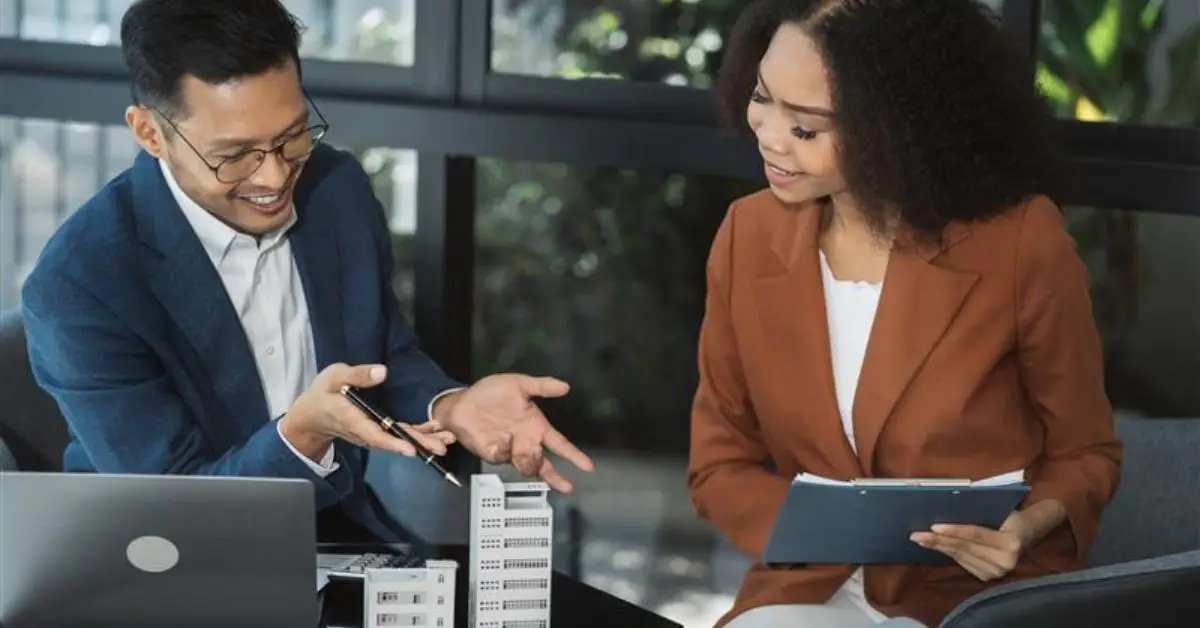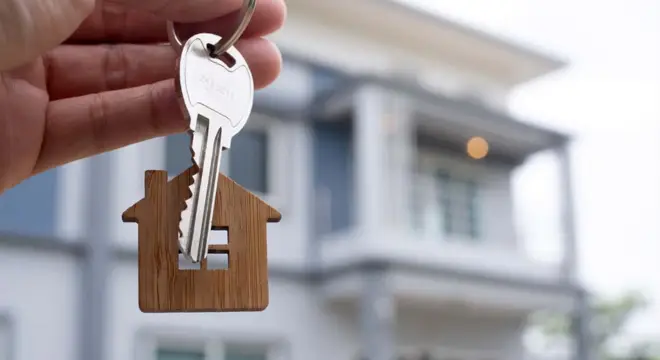8 Simple Etiquette Tips That Could Help You Buy Your Dream Home
Walking into an open house can feel like a test. You’ve got minutes to read the home, make a good impression, and avoid saying or doing anything that hurts you later. Meanwhile, other buyers are moving through the rooms, and the agent is juggling questions.
I’ve seen the same mistakes trip people up: arriving at the wrong time, wandering into private spaces, over-sharing budget, or snapping photos without asking. Most lists say “be polite,” but that’s not enough when you’re competing for a house you actually want.
This guide focuses on eight rules that help you act confident and strategic: when to arrive and sign in, what to ask (and when), where not to look, how to handle photos, how to keep a poker face, how to tour with kids or guests, what to do before you leave, and how to follow up with the right person.
If you use these rules, you’ll respect the seller, earn the agent’s trust, and protect your negotiating position—without feeling stiff or salesy.
Quick question before we dive in: what makes you most nervous at an open house—talking to the agent, asking questions, or not knowing the “don’ts”?
1. Plan & Prepare Before You Go
I’ll be honest with you—most buyers lose half the battle before they even step inside. An open house isn’t just about walking through a property, it’s about showing up prepared. If you do a little homework first, you’ll know exactly which homes deserve your time and you won’t waste energy wandering through places that don’t fit your budget or needs.
Here’s how I do it:
- Shortlist homes in advance – don’t try to cover every open house in town. Focus on the ones that match your price range and location.
- Research the listing online – check photos, square footage, and neighbourhood details so you walk in with context.
- Know your budget – it’s easy to fall for the staging, but keeping numbers in mind stops you from overreaching.
Once you’ve shortlisted, come armed with smart questions. Instead of asking vague things like “Is it a good neighbourhood?”, drill down into what matters:
- How long has the house been on the market?
- Have there been any recent renovations?
- Are there existing offers?
- What’s included in the sale (appliances, fixtures, etc.)?
These questions put you in control and show the agent you’re serious, not just browsing. According to Zillow, buyers who prepare questions in advance walk away with better insights—and fewer regrets later. Along with preparing questions, it also helps to know the biggest mistakes to avoid before you even start touring—check out our guide on 8 home buying and selling mistakes you don’t want to make.
2. Respect Arrival Etiquette

You might think showing up whenever you can is fine, but timing says a lot about you as a buyer. If the open house is advertised from 1 to 4 p.m., don’t arrive at 12:50 and catch the host scrambling, and don’t stroll in at 3:55 expecting a personal tour. Being punctual respects their time and gives you a fair window to explore without pressure.
When you enter, always sign in and greet the agent. A simple hello and a handshake can make all the difference. This isn’t just about manners—it also helps the agent keep track of interested buyers and gives you an easy way to follow up later if the property sticks with you.
Think of it like this:
- Showing up on time = respectful first impression.
- Signing in = opens the door for useful follow-up.
- Greeting the agent = sets a friendly tone for the entire visit.
These little gestures seem small, but they add up to the kind of buyer sellers and agents take seriously.
3. Dress and Present Yourself Well
You don’t need to show up in a suit, but looking put-together really matters. Think clean, casual, and comfortable—clothes you’d wear to meet a friend for lunch, not for lounging on the couch. When you look presentable, agents and sellers are more likely to take you seriously as a buyer.
The idea is simple:
- Neat and tidy → shows respect for the home and the people showing it.
- Comfortable → you’ll be walking, bending, and checking details—so don’t overdress.
- Appropriate → avoid anything sloppy or too flashy that distracts from why you’re there.
I’ve noticed that when buyers show up looking professional but approachable, agents tend to open up more and share useful details. It sets the tone that you’re not just browsing, you’re ready to make real moves.
4. Observe with Respect, Don’t Intrude
One of the biggest mistakes I see? Buyers wandering into every corner as if it’s a museum tour. Remember—this is still someone’s home. Stay out of clearly personal areas like closed bedrooms, drawers, or bathrooms unless you’re invited in. Respecting boundaries makes you stand out as a thoughtful visitor.
Also, be mindful of how you interact with the space. Open closets or cupboards gently, don’t slam doors, and never poke around looking for flaws in an obvious way. If you spot something odd, note it down quietly to ask later.
These little touches send a clear message: you’re evaluating the house with respect, not trying to catch the seller out. According to Redfin, treating the home carefully is one of the quickest ways to build goodwill during a showing.
5. Manage Interactions Thoughtfully

An open house often feels busy—agents talking, buyers coming and going. This is where timing matters. Hold your questions until the agent is free so you’re not interrupting mid-conversation. It shows patience and makes your questions more likely to be answered fully.
Equally important: watch your tone. Keep comments positive and low. Even if the wallpaper isn’t your taste, don’t roll your eyes or joke about it loudly. Sellers sometimes overhear, and agents always remember.
Quick pointers to keep in mind:
- Wait your turn to ask questions.
- Stay professional even if the home isn’t for you.
- Keep criticism private—save it for your notes.
The goal is to leave as the kind of buyer who’s easy to work with—curious, respectful, and serious. That impression lasts longer than you think.
6. Capture Information Smartly
I’ve seen buyers walk through three or four homes in one afternoon and later struggle to remember which kitchen had the island or which one had the leaky window. That’s why capturing details the right way matters.
First, always ask before taking photos or videos. Some sellers are fine with it, others aren’t. Respecting privacy keeps the atmosphere professional and avoids awkward conversations.
Second, use the tools already given—most open houses provide listing sheets. Jot down quick notes about what you notice:
- Strong points (natural light, layout, storage).
- Red flags (odours, cracks, repairs needed).
- Personal impressions (can you imagine yourself living there?).
Doing this immediately after the tour keeps your memory fresh and gives you a solid reference later. As HomeLight notes, notes and listing sheets are one of the simplest but most overlooked tools for smarter decision-making.
7. Be Emotionally Neutral & Strategic
It’s natural to feel excited when you find a home that clicks, but showing too much enthusiasm can work against you. Agents—and sometimes sellers—pick up on reactions. If you gush about the kitchen or casually mention your budget, you risk weakening your negotiation position.
Instead, keep a poker face and focus on gathering information. Don’t reveal timelines, pre-approval limits, or how quickly you want to move.
Also, don’t get distracted by clever staging. Look past the stylish décor and check the bones of the house:
- Are the floors level?
- Do windows open smoothly?
- Any signs of water damage or rushed fixes?
This is how you separate real value from surface-level appeal. Want to go a step further? Here are 7 smart signs a home will hold its value—so you can spot lasting worth, not just temporary charm.
8. Exit & Follow Up Responsibly

The way you leave is just as important as how you arrive. Don’t linger too long or monopolise the agent’s time when others are waiting—it leaves the wrong impression. A respectful goodbye makes you memorable in the right way.
Once you’re out, review your notes right away. If the home interests you, reach out promptly while the visit is still fresh. Following up shows you’re serious and helps keep you ahead of other buyers.
Finally, make sure you understand who you spoke to. Was it the listing agent, an associate, or a buyer’s agent filling in? Knowing their role helps you manage next steps and negotiations wisely.
According to The Balance, clarifying the agent’s position is a small but powerful step that keeps you from making costly mistakes down the road. And if you’re thinking about buying together with family, you’ll want to read our breakdown of 6 things you’ll love and hate about purchasing a home with your parents.
Conclusion
At the end of the day, an open house isn’t just a casual walk-through—it’s your chance to stand out as a serious buyer. By mastering these eight etiquette rules, you show sellers and agents that you’re respectful, prepared, and worth working with. More importantly, you protect yourself from rookie mistakes that can weaken your negotiating position.
Think of it this way: when you arrive on time, ask smart questions, keep your notes, and exit gracefully, you’re not just looking at a house—you’re proving you know how to buy one. That confidence sticks.
Quick Checklist
- Do your research and prep questions.
- Arrive on time, sign in, and greet the agent.
- Dress neatly—comfortable but professional.
- Respect personal spaces and handle features gently.
- Ask questions at the right moment, stay polite.
- Take notes and only capture photos with permission.
- Keep your excitement in check; focus on real structure.
- Exit courteously, review notes, and follow up promptly.
Keep this as your one-page playbook before every open house.
Now I’d love to hear from you: What’s the most awkward or surprising thing you’ve seen at an open house? Share your story in the comments—I’ll bet other readers can relate.
And if you’re serious about buying or upgrading your home, head over to Build Like New for more practical guides and expert-backed insights that help you make smarter moves in real estate.
Disclaimer: This article is meant for general informational purposes only and should not be taken as legal, financial, or professional real estate advice. Always consult with a licensed real estate professional or agent before making property decisions.


